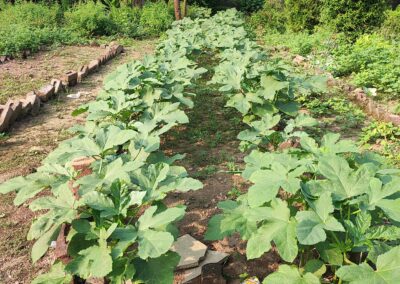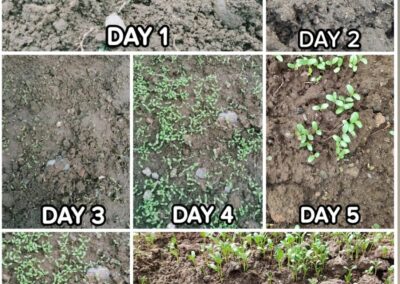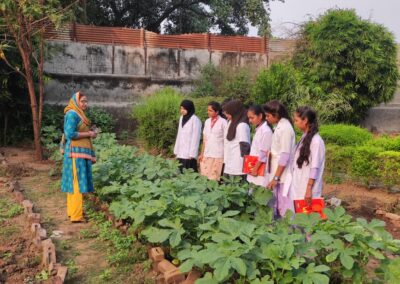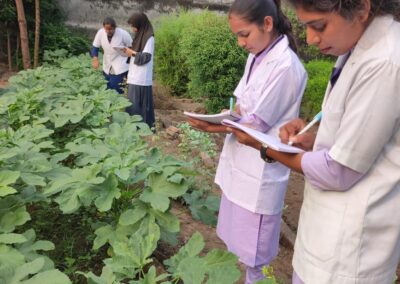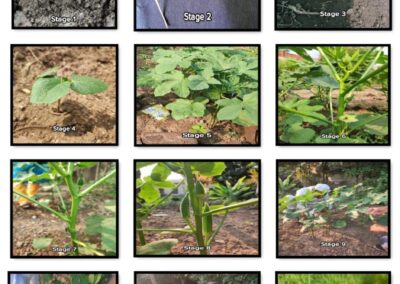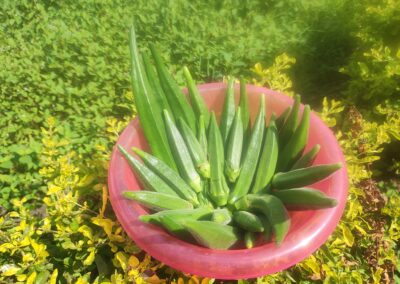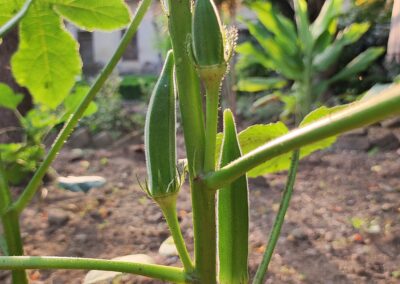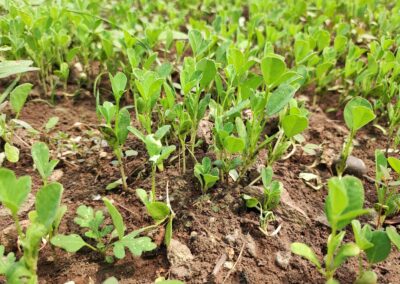Botany Department : Organic Farm Development Initiative
Report: Fenugreek and Okra
Project Overview
The Botany Department at SGJQ College launched an organic farming project with fenugreek and
okra, offering students hands-on experience in sustainable agriculture.
Objectives
- Introduce organic, sustainable farming.
- Develop practical botany skills.
- Foster understanding of plant biology.
- Highlight organic farming’s economic and environmental benefits.
Faculty and Student Involvement
- Head of Department – Prof. Shakira Ansari
- Supporting Faculty – Miss Sakshi Jadhav
- Operational support – Shree Lakshman Jadhav and caretakers of botanical garden
- Student observers- Assigned students monitor the growth of specific plant
Student Involvement
Our students played a vital role in every phase of the organic farming project, actively involved from seed sowing to harvest. They carefully tracked each growth stage, recording key data like germination, leaf development, and flowering, while gaining hands-on experience in sustainable agriculture. This project enriched their understanding of plant biology and fostered essential skills in observation, data recording, and environmental stewardship.
Botanical Description
| Fenugreek plant: Trigonella foenum | Okra Plant: Abelmoschus esculentus |
Classification
|
Classification
|
Comparative Growth Chart of Fenugreek and Okra
| Stage | Days (Approx.) |
Fenugreek | Okra | Description |
| Seed Sowing | Day 1 | Sown in prepared soil beds. |
Sown in nutrient-rich, well-drained soil. |
Properly prepared soil ensures healthy plant growth. |
| Germination | Days 2-7 | Starts within 2- 4 days. |
Begins within 4-7 days. |
Initial root and shoot formation from seeds |
| Seedling Stage | Days 5-10 | Emergence of cotyledons. |
Seedlings with cotyledons and first true leaves. |
Young plants visible above soil |
| Leaf Development |
Days 10-20 | True leaves appear early after germination. |
Steady growth of true leaves |
Leaf formation and plant height increase. |
| Vegetative Growth |
Days 15-25 | Rapid leaf and stem development. Ready to harvest as vegetable |
Strengthens stem and leaf structure |
Plant structure supports upcoming flowering. |
| Flowering Stage |
Days 25-30 | Yellow/white flowers bloom. |
Yellow flowers signal fruiting phase. |
Flowering prepares the plant for fruiting |
| Fruit Development |
Days 30-40 | Seed pods start forming. |
Okra pods begin to form at flower sites |
Pods develop, replacing flowers. |
| Maturity & Harvesting |
Days 35-50 | Pods mature for collection after 33 -35 days . |
Harvest-ready green okra pods after 45- 50 days . |
Harvesting when pods reach full size |
Outcomes and Benefits
This initiative has empowered students with practical knowledge in organic farming and skills in scientific monitoring and teamwork. It aligns with India’s growing demand for sustainable, chemical-free food and supports their academic and professional development in botany and environmental science.
Conclusion
The fenugreek and okra farming project provided invaluable insights, exemplifying organic farming’s benefits. This successful harvest showcases our students’ commitment, marking a meaningful step in the college’s organic farming efforts.

